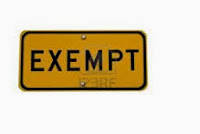Florida Bankruptcy Personal Property Exemptions
 Personal property of $l,000.00 and $4,000.00 value
Personal property of $l,000.00 and $4,000.00 value
Each debtor may "exempt" (i.e. keep) $l,000.00 of personal property ($2,000.00 for a joint case) from the bankruptcy estate. Also another statute allows each debtor to “exempt” $4,000.00 ($8,000.00 for a joint case) of personal property if one does not claim or receive the benefits of a Florida homestead exemption. The valuation of the property is generally based on its liquidation value or "garage sale" value.
Cars and other Motor Vehicles
In addition to the above general personal property exemption, $l,000.00 in equity ($2,000.00 for a joint case), in one car (two for a joint case) or other motor vehicle (such as a motorcycle, truck, trailer, semi-trailer, truck tractor, semi-trailer combination, recreational vehicle, etc.) is "exempt" from the bankruptcy estate. Often this is not even used as many vehicles have no net value (equity) as more is owed on them than they are worth (i.e. you are "upside down"). During and after the bankruptcy, you must, of course, continue to make any payment due for a lien on the vehicle.
Pension Plans, IRAs, and other Retirement Plans
Pension plans, I.R.A.'s, and other retirement plans are generally not part of the estate or may be exempted from the estate (including under the exemption provided in the Bankruptcy Code itself 522 (b)(3)(C)) .
Prescribed Health Aids
Any professionally prescribed health aids may generally be exempted from the bankruptcy estate.
Earned Income Credit Refund
An interest in an IRS earned income credit ("EIC") whether received or yet to be received is exempt. It also applies to funds in a bank account traceable to such EIC. This exemption does not apply to collection for child support or spousal support. Jordan E. Bublick is a Miami Bankruptcy Lawyer with over 25 years of experience in filing Chapter 13 and Chapter 7 Bankruptcy Cases and Mortgage Modifications (305) 891-4055

 Updated daily, this blog will keep you informed on the latest bankruptcy news!
Updated daily, this blog will keep you informed on the latest bankruptcy news!  Learn more about how Bankruptcy works and what you need to know.
Learn more about how Bankruptcy works and what you need to know.